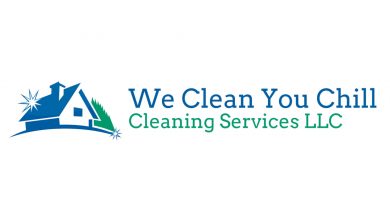The Ultimate Guide to Dry Cleaners: Quality Care for Your Clothes

Introduction
In a world where appearance matters, maintaining the pristine condition of your clothing is essential. Dry cleaners play a pivotal role in ensuring that your garments not only look clean but also retain their quality over time.
How Does Dry Cleaning Work?
Dry cleaners employ a solvent, typically perchloroethylene or hydrocarbon, to remove stains and dirt from fabrics. The process begins with garment inspection, followed by pretreatment of stains using specialized agents. The garments are then placed in a machine where they are cleaned and dried using the chosen solvent.
Benefits of Dry Cleaning
Dry cleaning offers several advantages, including gentle cleaning that prevents fabric damage, effective stain removal, and the ability to clean delicate fabrics like silk and wool without compromising their integrity.
When Should You Opt for Dry Cleaning?
Certain garments and stains benefit significantly from dry cleaning, such as suits, evening dresses, and oil-based stains. Delicate materials and intricate designs are also better suited for dry cleaning.
Choosing a Reliable Dry Cleaner
Selecting a reputable dry cleaners involves considering factors like experience, services offered, customer reviews, and convenient locations. A reliable dry cleaner ensures your clothes receive the care they desire
The Dry-Cleaning Process Step-by-Step
The dry-cleaning process involves garment inspection, tagging, stain identification, pretreatment, machine cleaning, detailed hand cleaning, finishing, and final inspection. Each step contributes to the thorough cleaning and inspection of your clothing.
Caring for Different Types of Clothing
Different fabrics require different care. From delicate silks to sturdy denim, understanding how to care for various fabrics ensures they remain in excellent condition after each dry-cleaning cycle.
Common Myths About Dry Cleaning
Dispelling misconceptions about dry cleaning, such as the idea that all clothes can be dry cleaned and that the process is harmful to the environment, is crucial for making informed decisions about clothing care.
Environmental Considerations
While traditional dry-cleaning solvents were harmful, modern dry cleaners are adopting eco-friendly practices. Look for cleaners that use sustainable solvents or wet cleaning methods to reduce their environmental impact.
Cost of Dry Cleaning vs. Traditional Washing
The cost of dry cleaners varies depending on factors like the garment type, location, and additional services. While it may be more expensive than traditional washing, the benefits in terms of clothing longevity and appearance often outweigh the cost.
DIY Dry Cleaning Kits: Yay or Nay?
DIY dry cleaning kits offer a convenient option for minor touch-ups, but they can’t replace the thorough cleaning and care provided by professional dry cleaners for heavily soiled or delicate items.
Tips for Extending the Lifespan of Your Clothes
Proper garment care, such as rotating your wardrobe, following care labels, and avoiding excessive dry cleaning, can extend the lifespan of your clothes and save you money in the long run.
Stain Removal Techniques Before Dry Cleaning
Addressing stains before they are set is essential. Learn about safe stain removal techniques to employ at home before sending your clothes to the dry cleaner.
Exploring Alternatives: Wet Cleaning
Wet cleaning is a water-based alternative to traditional dry cleaning. It uses specialized equipment and biodegradable detergents to clean delicate garments effectively.
Conclusion
In the realm of garment care, dry cleaners stand as a beacon of convenience, quality, and specialized expertise. By entrusting your clothes to their care, you ensure that your wardrobe remains a testament to your impeccable style.
Frequently Asked Questions
- Is dry cleaning suitable for all types of fabrics?
Dry cleaning is ideal for delicate fabrics like silk and wool, as well as garments with intricate embellishments.
- Can dry cleaning remove all types of stains?
While dry cleaning is effective against many stains, particularly oil-based ones, some stubborn stains may require specialized treatment.
- Are dry cleaning solvents environmentally friendly?
Modern dry cleaners are adopting eco-friendly practices, using sustainable solvents and methods to reduce environmental impact.
- How often should I dry clean my clothes?
It depends on factors like garment type, frequency of wear, and exposure to stains. Follow care labels and consider professional advice.
- Can I replace professional dry cleaning with DIY kits?
DIY kits are suitable for minor cleaning and touch-ups, but they can’t replicate the thorough care of professional dry cleaning for all items.





